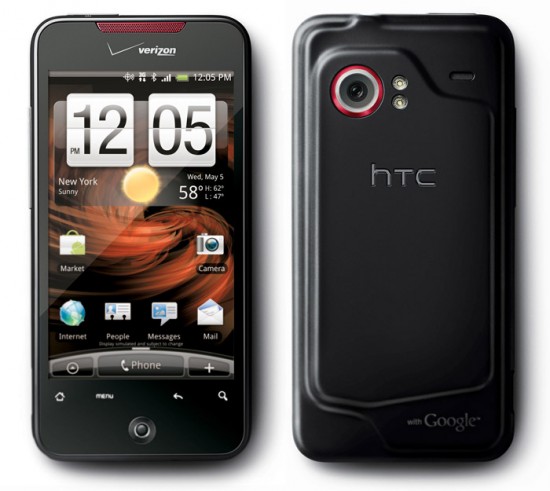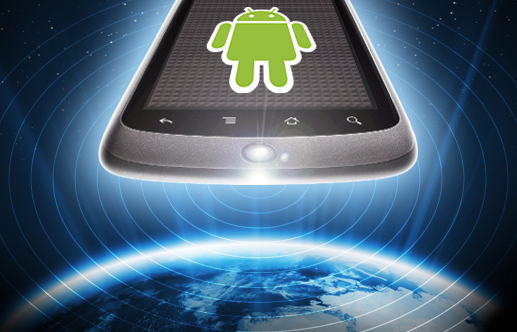|
Posted: 08 Feb 2013 12:55 PM PST
  What’s in a name? Well, Shakespeare would have you believe it doesn’t matter much at all, that “a rose by any other name would smell as sweet.” True, but when it comes to big carriers looking to invest their money into a new product, a name is a brand and a brand is a powerful thing. Looks like HTC could be taking their already well known One brand and running with it. A new tip from leak-extraordinaires, @evleaks, is suggesting that the upcoming flagship could see a release as simply the HTC One — no X, no S — just One. If you think about it, Apple doesn’t confuse consumers by releasing new smartphones every year with a new name, especially not after the original was such a success. Consumers need something they can immediately identify with, so in the smartphone, automobile, or even computer business, a name means an awful lot. With HTC, their One line has proven itself enough of a success in the US and other parts of the globe for the Taiwanese manufacturer to stick with it. Maybe people will start asking “Oh, is that the new One?” in 2013. Can’t wait to see what HTC finally unveils (and confirms) at their Feb 19th even in New York. We’ll keep you posted. [via Twitter] |
|
Posted: 08 Feb 2013 10:10 AM PST
 As has become the norm for tablets, the Samsung Galaxy Note 8.0 will be available in several connectivity configurations upon launch. According to information gathered from filings found on the Bluetooth SIG website, there will be a GT-N5100 model, a GT-N5110, and a GT-N5105. They account for WiFi + 3G, WiFi-only, and WiFi + 3G + LTE setups. The listings only peg the models for a European release, but Samsung will not doubt at least offer two options in other regions. If any carriers decide to stock the device, they will obviously carry the version best suited for their network. Pricing would likely increase from WiFi model (rumored to start around €450) up through the LTE-enabled version of the slate. We are expecting Samsung to unveil the Galaxy Note 8.0 during or around the time of Mobile World Congress. In the tradition of previous Note models, the 8-inch tablet will feature support for Samsung’s S Pen capacitive stylus. [via UnwiredView] |
|
Posted: 08 Feb 2013 08:00 AM PST
I’m often asked why Google doesn’t have its own retail stores ala Apple, and now Microsoft. After all, the Mountain View corporation commands the world’s biggest mobile operating system, and has a lot of product spaces to delve into should it find the need to fill store shelves with unique stuff. Whether or not Google needs its own retail store is a good question, and we’ll take a look at both sides of the coin to see if we can’t help answer it.
Why a retail store would be difficult for GoogleThere are many reasons why Google should open its retail stores, and the company certainly has the capital and clout to do so. So why haven’t they? That’s a tough question to answer without being able to pick the brains of several executives within the company, but there are a few glaring points that we can dive into without the help of El Goog. Later, we’ll discuss how a retail store would help the company and why we’d be excited to see one come to fruition. Let’s go!If you can’t do it online…It’s easy to look no further than the company’s failed online store experiments. The first time Google tried running its own online store front — when the Nexus One first launched — it failed miserably. A combination of shortcomings in areas like customer service, user experience and a lack of advertising doomed the experience, and Google decided to shut it down. Fast forward to today, and while things have improved a bit the experience is still far from perfect. Google leveraged the Play Store’s attractive good looks and marketplace feel to peddle its latest wares. I won’t knock Google on supply constraints alone (that’s something hardware partners are also accountable for), but the early lack of communication and confusion on Google’s part regarding the shipment delays for the latest Nexus devices didn’t do much to instill confidence that its customer service improved in quality. Beyond that, Google didn’t necessarily employ “best-in-class” logistics as shipment patterns remained erratic and unpredictable for quite some time. Google could pull it off with experienced partners by its side, but the taste left in our mouths by the latest blunders have us appreciating the likes of Amazon, Best Buy and Walmart even more. Google has to avoid favoritism gameOne of the biggest challenges Google continues to face in this journey is the ability to balance, and the balancing act that involves OEM focus vs Android focus is a tough one to master (but we’ll get into that a little later). Beyond that, the Mountain View company doesn’t want to do anything to make any of its OEM partners feel like one company is getting more favorable treatment over another, and it also wants to shy away from promoting Android as the only bit that matters in this big, convoluted equation.Because Android can be licensed and customized by pretty much anyone, it is imperative for Google to let the “darwinism” of the mobile tech world play out organically, but at the same time Google has to make sure that particular stance doesn’t scare others away. Take Samsung, for instance — it seems like it is the only company still making any significant amount of money with Android products in this day and age, and the train doesn’t seem to be slowing down soon. It would be against Google’s best interest to let the likes of HTC, LG, Sony and more suffer, but at the same time it would go against Google’s MO to do anything to stop it from happening.  Translate that into the retail space, and you can see how things could get out of hand. Shoving Samsung products into the window displays would attract more customers, sure, but then you’re leaving less of a spotlight for the others. On the flip side, should Samsung be punished for creating an exciting and compelling product? Absolutely not. Even the most subtle nuances in the presentation of a Google/Android store could send one of these OEMs off the deep end, and without a better understanding of the dynamics between OEM and software vendor it becomes a tricky issue to tackle. This is something Google will have to avoid as best as it can for as long as it can. Iconic branding a double-edged swordKnowing that Google is sitting on a goldmine of a brand, but one that it can’t push to the strongest of its abilities, is a tough cookie to swallow. “Google” itself is a household name already, and the lovable face of its mobile operating system — BugDroid — is absolutely perfect. It’s something for humans to identify with, and it sure beats the image of a dull bitten apple.Google could get really creative with the Android brand, but this goes back to the same problem that forces Google’s hand when it comes to OEM favoritism. Google wants Android to appeal to manufacturers with its openness and ability to be customized, so that they can differentiate from one another and create their own unique products.  It would be unwise for Google to go the Microsoft route and force the stock Android skin on its partners, because it’d lose the very perk that has generated so much OEM interest in the first place. Google keeps the stock dream alive with the Nexus brand, and that’s enough for us — if a user really wants stock Android, they’ll know where and how to find it. That will never help in the quest to kill the fragmentation issue, of course, but if it’s what inspires and drives these companies to keep innovating and creating new products we can’t say we aren’t all for it. It all goes full circle from there: let OEMs choose where to sell, how to sell, and what to sell, and you’re going to keep everyone happy and willing to push your product forward. It’s worked for Google this long — to the tune of owning more than half the worldwide market share in just over 4 years — so why change things up? How a retail store would helpThat said, the geeky and fun consumer in me would still love to see a chain of Google stores. If Google can find a way to create a retail experience that doesn’t alienate its hardware partners or hurt the future of the platform, we’re all for it. Here are some ways in which a retail store could help Google push several of its platforms forward.Emerging products could get much-needed shineThere’s a huge elephant in the room that no one seems to want to talk about — beyond Android phones and tablets, where is Google succeeding? Google has tried a lot of different things over the years, but not all of it has turned out to be a hit. In fact, a vast majority of it hasn’t panned out. Google TV is off to a rocky start as user adoption is slow and developer interest is waning.It’s remarkable that Google still has several OEMs willing to help push the idea into the living rooms of users everywhere. We were all but certain that Google TV was in trouble after Logitech decided to throw in the towel, but the folks at Sony, ASUS and Vizio are keeping things afloat for the time being. Likewise, the whole ChromeBook experiment doesn’t seem to be skyrocketing into the atmosphere. Like Google TV, we didn’t expect results overnight, but you have to wonder just how long Google can keep it up. Samsung and ASUS have been the only OEMs willing to give it a fair shot as of late, though a couple of more are rumored to have products coming in the near future. A Google retail store would give these products the shine they need. People would find it in their faces and ready to be played with instead of shoved into a tiny corner of a large retail store without so much as a demo to see how the stuff works. It would break Google’s conservative advertising ideology, but it’s something that needs to happen, and seemingly can’t happen soon enough. Google could crush the Apple StoreLet’s face it — one of the biggest reasons any of us would love to see a Google store erected in the streets of New York, LA and other cities of the world is because of the potential blow Google could deal to Apple. Apple stores receive a tremendous amount of traffic. I don’t know if you’ve ever set foot in one, but the busiest stores can become elbow-to-elbow grope fests, and it’s not uncommon to see a MacBook or iPhone repair being carried out on the floor instead of on a neat service counter.Imagine the type of store Google could build to attract some of those people and get more people in-tune with Android and all things Google. We already know how creative and fun Google can be first hand: anyone who’s been to the last couple of Mobile World Congress shows can attest to the wackiness it brings to the table.  A Google store would be infinitely more fun and inviting, and the range of products would be diverse enough to hold the attention of anyone for hours. Translate the feel-good energy from that experience into a potential sale and you could see sales soar higher than they ever have before. We don’t want Apple killed off completely, of course — competition is always good — but we sure would love to see it take a bit more of a beating than it’s already gotten these past few years. It would help improve brand awarenessIt all comes down to this, really. This contradicts a point I made in the previous section, but it’s impossible not to play both sides of the fence here (especially when you consider recent rumblings around the tech world). Even though Android is everywhere and smartphone owners buy more Android phones than any other, it could still do with some stronger brand awareness.As tech geeks, we tend to get a little peeved when someone calls their phone a “DROID” even when the device might be offered on the likes of US Cellular and MetroPCS. A recent study also suggested that consumers identify with Samsung’s Galaxy brand more than they do Android itself. You no longer have “Android phones,” but “DROIDs” and “Galaxies,” and it would be nice if that weren’t the case. Google might not mind that situation considering its desire to keep an open marketplace where the best man is free to do what they will to win. Still, if it’s going to really beat Apple in the mobile front — including tablets, where there’s still a lot of work to be done — it has to do something to establish a strong brand identity with a flag that people will be proud to wave no matter which phone or tablet they have. Just dream a little!These are just the opinions of one man, though. There is a ton of room and need for Google stores (with Android and Chrome OS as heavy focuses, obviously), but at the same time there’s a lot that’s forcing Google’s hand and the sheer idea of getting anything of the sort is just wishful thinking.Let us know your thoughts, though — should Google open a retail experience or should they continue to do what’s been working for them? And don’t stop there: let us know what type of features you’d love to see in a Google store! We know the tech giant loves to have fun (as evidenced by its amazing offices and consistent rating as the world’s best company to work for) so go nuts with your idea and fantasize along with the rest of us in the comments section below. |
|
Posted: 08 Feb 2013 07:43 AM PST
 The original HTC Droid Incredible — yes, the device that launched nearly three years ago — is receiving the most minor of minor updates today. It’s random, but not totally unexpected. Verizon posted the support documentation for the update last week, detailing the 4.2MB patch that is now arriving for users still carrying the handset. What does the update address? “Reduced device reboots.” Nothing less, nothing more. Like we said, pretty minor stuff. It does, however, provide us with an opportunity to reflect on the device. The hype leading up to its launch, filled with leaks and rumors galore, was a real sign of things to come. It was the tip of the iceberg in terms of the sort of fervor Android fans now show for their favorite OS and the phones that run it. With most two-year contracts for the Droid Incredible long expired, few are still slinging the phone on a daily basis. But if you have one sitting around collecting dust, it might be worth firing that bad boy up, grabbing the update, and taking a trip down memory lane. [via AndroidForums] |
|
Posted: 08 Feb 2013 07:03 AM PST
 Though Google remains mum on exact sales figures for the Nexus 4, a group fans at XDA believe they have cracked the handset’s IMEI number and discovered a way to estimate the number of phones in the wild. According to a post yesterday, the Android 4.2 flagship has reached its one millionth unit sold. The number can be traced to a black Nexus 4 supposedly manufactured on February 5th and sold in Turkey. Technically it was pinned down as the 999,998th phone off the line, but the assumption is that LG has produced phones beyond that number. According to their figures, production of the phone has increased significantly in the new year, with LG pumping out over 550,000 units in January alone. Google seems to be catching up on its backlog of Nexus 4 orders, and the once hard to come by device has been in stock via the Google Play Store fairly consistently as of late. If you want the details on how the number of devices manufactured and sold is being calculated, or if you want to add your data to the crowdsourced cause, head over to the XDA link below. [XDA via TechCrunch] |
|
Posted: 08 Feb 2013 06:16 AM PST
 LG has announced via their Facebook page that Jelly Bean updates for the Optimus 4X HD, Opiitmus L7, and Optimus L9 are nearing the final stages of development before rolling out to users. The news comes by way of LG’s Hong Kong branch and covers versions of the phones carrying the model numbers P880 (4X HD), P705 (L7), and P765 (L9). The timing of the announcement is fitting. As LG prepares to launch its next generation of smartphones at Mobile World Congress, the arrival of Android 4.1 makes an appropriate sendoff for older models. Even if that sendoff took quite a while to arrive. [via UnwiredView] |
|
Posted: 08 Feb 2013 05:21 AM PST
 While many scramble to find the latest Nexus device in stock for purchase, the first Google phone is part of a much bigger agenda. The Nexus One is ready for lift off after being bolted to the side of the 30cm “cubesat” Strand-1, which has been in development for almost two years. Not only will the Nexus One’s 5MP camera be used to capture images of space, but a collection of apps will stow away beyond the earth’s atmosphere to test such things as the magnetic environment surrounding the Strand-1. The Alien tagline “In space no one can hear you scream” will also be challenged using an app that plays videos of people screaming. The satellite is en route to India where it will piggyback on the launch of the Isro Polar Satellite Launch Vehicle on February 25th. Once in space, the Strand-1 will use experimental water-alcohol propulsion and plasma thrusters to maneuver. While the first set of experiments aren’t even underway, the folks at the Surrey Space Centre and Surrey Satellite Technology are already looking toward the Strand-2, which will use Xbox Kinect to locate and dock multiple satellites in orbit. [via BBC | Thanks, roadpizza!] |
|
Posted: 07 Feb 2013 08:59 PM PST
 The Android Overload is where we feature the biggest news stories from throughout the day (see above video), as well as stash all of the stories/articles/news bits that didn't make it onto our front page. But just because they weren't featured doesn't mean they aren't worth taking a look at. In fact, there's almost always a little something here for everyone. So, take a look around and let us know if you find anything of interest.
|
Sunday, February 17, 2013
Android Phone Fans
Subscribe to:
Post Comments (Atom)
No comments:
Post a Comment